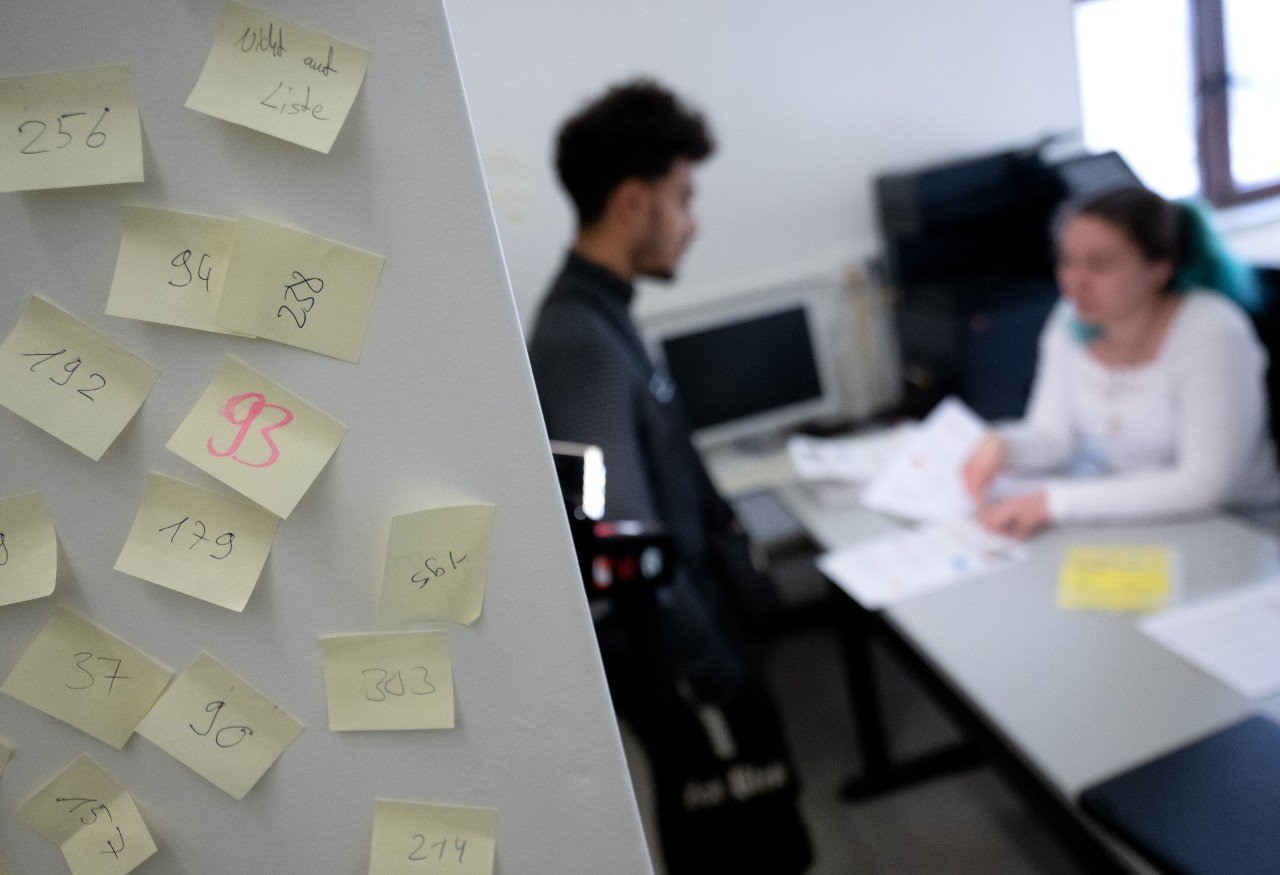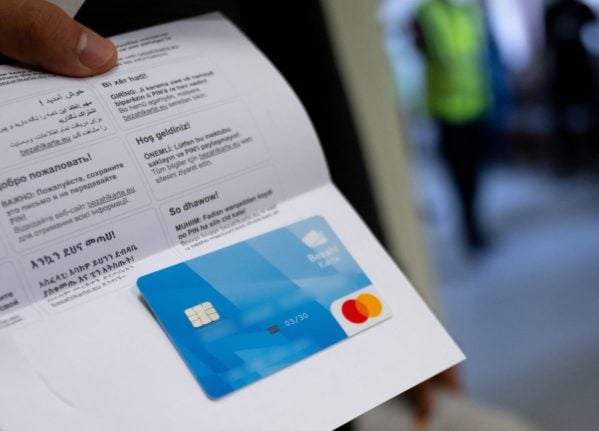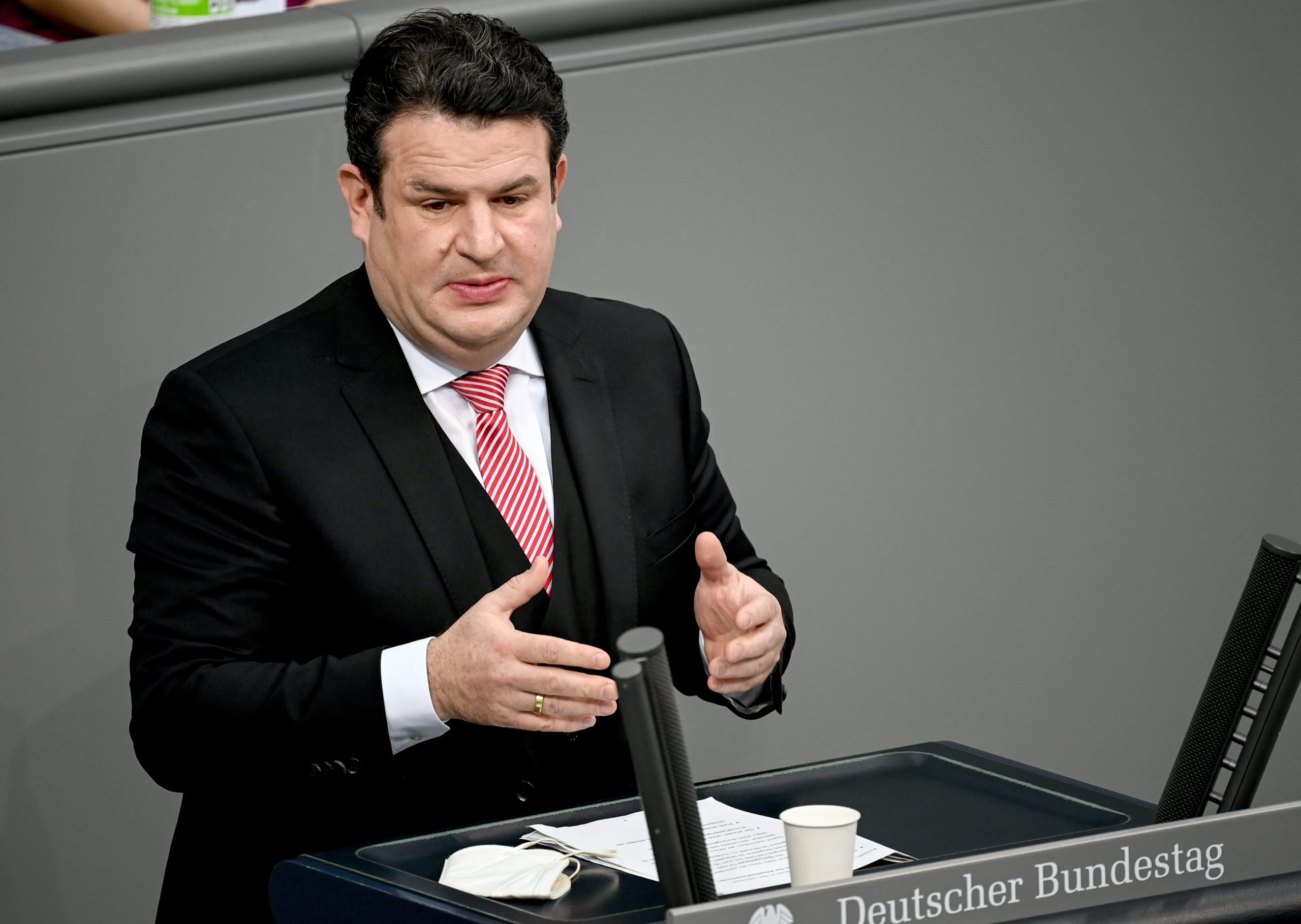From November, asylum seekers in Germany will receive part of their subsistence benefits as credit instead of cash.
Supporters of the switch say it is intended to prevent migrants from transferring money to smugglers or family and friends abroad.
The Bundestag voted in favour on Friday with overwhelming support from members of the traffic light parliamentary groups (SPD, the Greens and FDP). Members of the AfD and the BSW also voted in favour.
The CDU/CSU and the Left Party, as well as Green MP Canan Bayram, voted against the measure.
Some states have already adopted a payment card system for their asylum seekers, but the new act will unify rules across the country.
Chancellor Olaf Scholz (SPD) and the state premiers agreed on the introduction of the card on November 6th.
“The payment card can be used to pay for goods and services of daily life,” said Federal Minister of the Interior Nancy Faeser (SPD). “However, the possibility of withdrawing cash is limited… A crucial point for us is that transfers and cash payments abroad are no longer possible.”
The law now states that the benefit authorities can decide for themselves how much cash cardholders can withdraw within a certain period of time. In this way, “individual needs and circumstances” are taken into account.
But certain types of businesses in Germany, including barber shops or kebab kiosks, often only accept cash. For critics of the bill, this means that the card could create yet more bureaucracy for asylum seekers, who often face lengthy waits and hefty amounts of paperwork.
READ ALSO: Ask an expert – Why is cash still so popular in Germany – and is it changing?
The police union (GdP) warned against keeping the share of cash for refugees too low.
Refugees are often under pressure to cover the medical costs of their families in their country of origin or owe money to smugglers. This pressurised situation does not disappear with the payment card and can also have an impact on the safety of the remaining families in the home countries, explained the GdP federal chairman Jochen Kopelke.
Kopelke added: “If moderation is not maintained, there is a risk that refugees will try to obtain the money they need through criminal activities.” Those affected should not be pushed into crime.

How are political groups reacting to the law?
For their part, the CDU believes the payment card system could make Germany less attractive to refugees.
CDU MP Detlef Seif said the card was not a panacea, but could help to reduce the number of asylum seekers moving on to Germany within Europe. His party colleague Kai Whittaker condemned the project as insufficient, as the cash payment would not be limited to €50 per month as demanded by the Union.
The Greens had not considered a nationwide uniform regulation necessary. However, the party largely agrees with the regulation that has been adopted.
Deputy chairman of the Greens parliamentary group, Andreas Audretsch, said: “Refugees who live in an apartment must be able to [pay their utility bills].”
He noted that this wasn’t previously clear in the regulation, but that this had been added to the adopted version of the bill.
Stephan Thomae, a member of parliament for the Free Democratic Party (FDP), emphasised that with the card, asylum seekers could avoid queueing up to receive money on the last working day of the month, and would no longer have to travel home with large sums of money in their pockets.
READ ALSO: Border centres and ‘safe’ states: The EU’s major asylum changes explained
Clara Bünger, a member of parliament for the Left Party, on the other hand, criticised the “disenfranchisement of refugees” and said that legal certainty would be lost.
Meanwhile, members of the anti-migrant AfD accused the traffic-light coalition of an overly liberal migration policy.




 Please whitelist us to continue reading.
Please whitelist us to continue reading.
Member comments